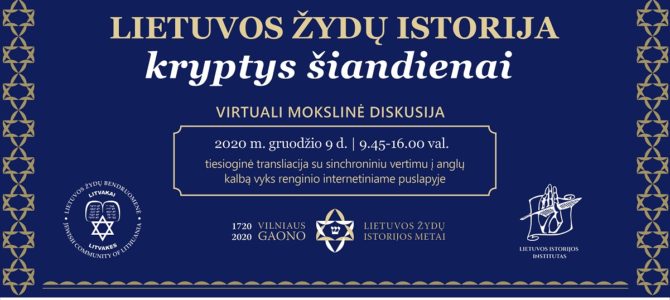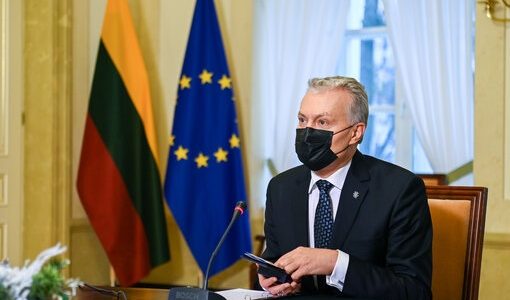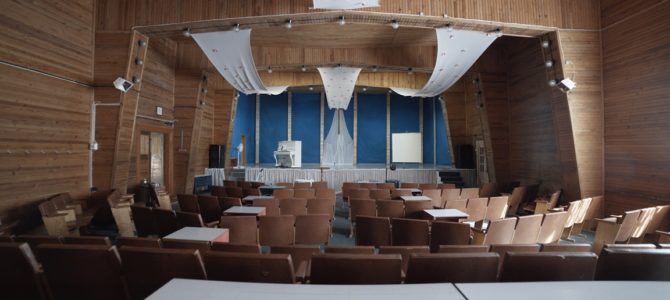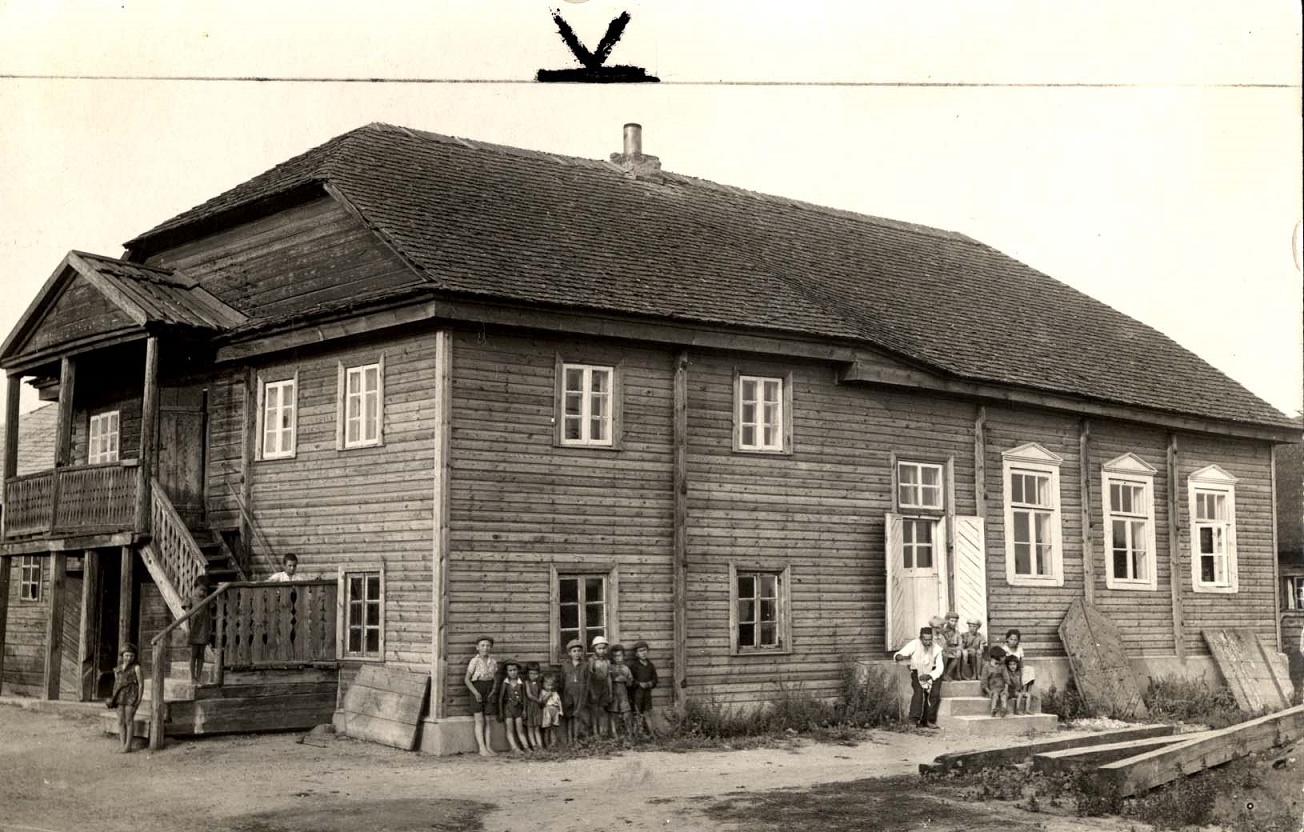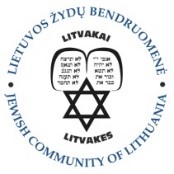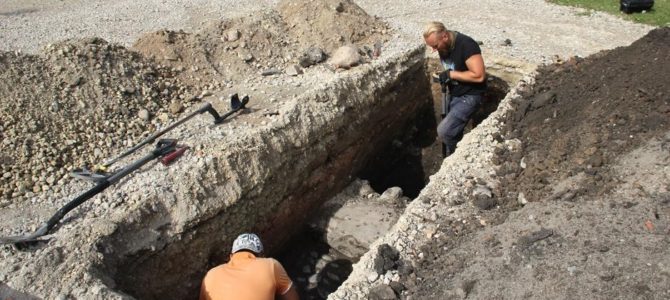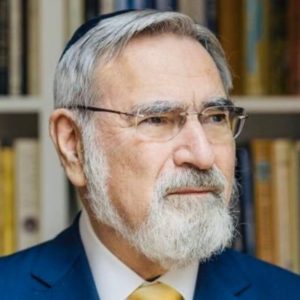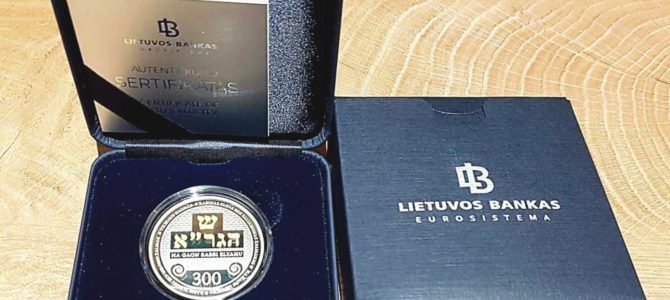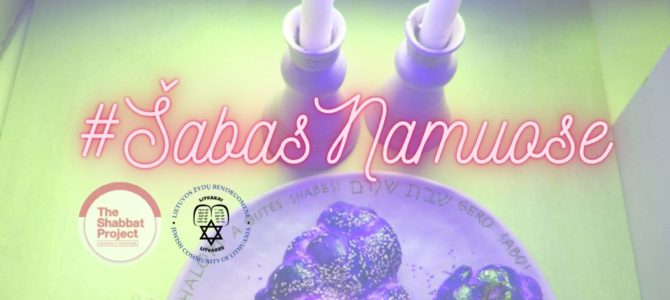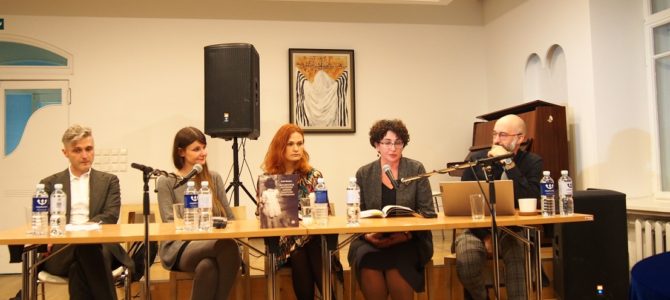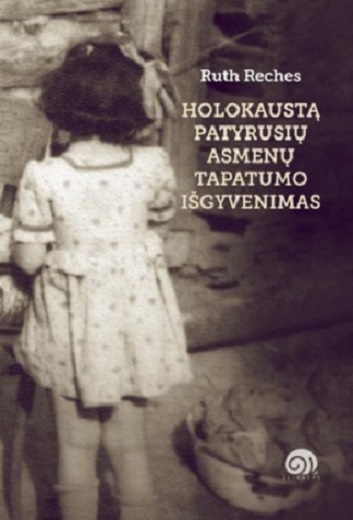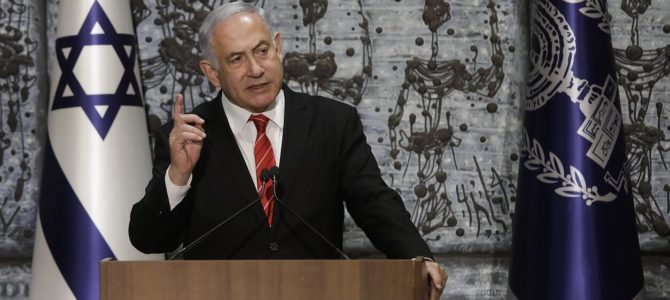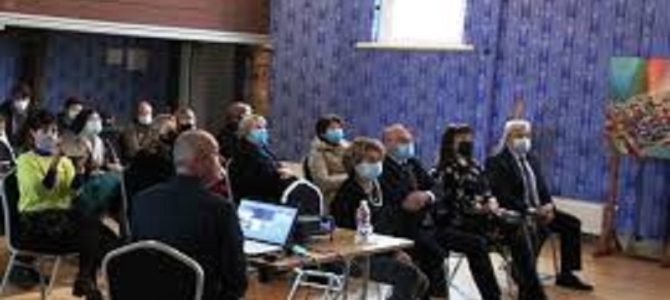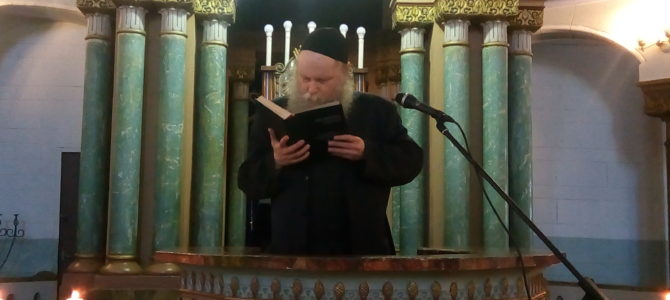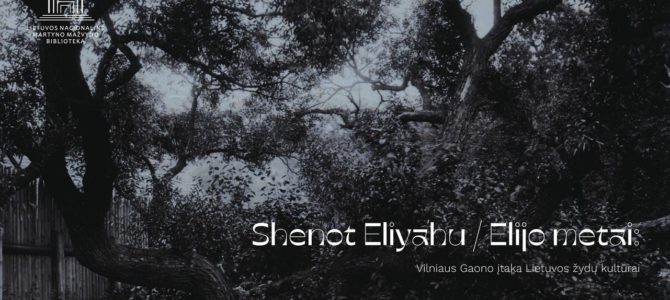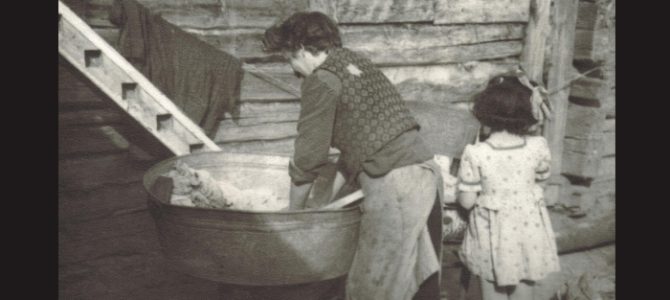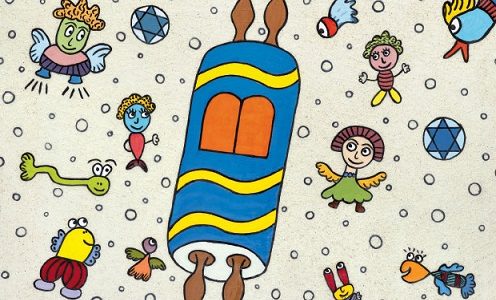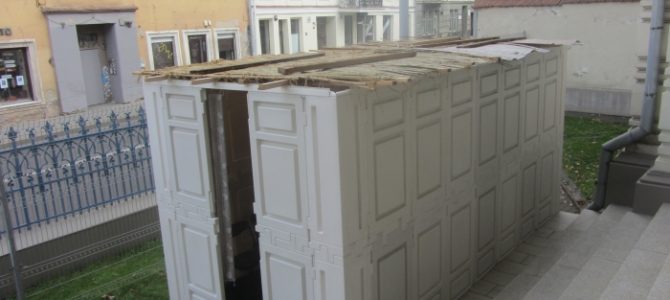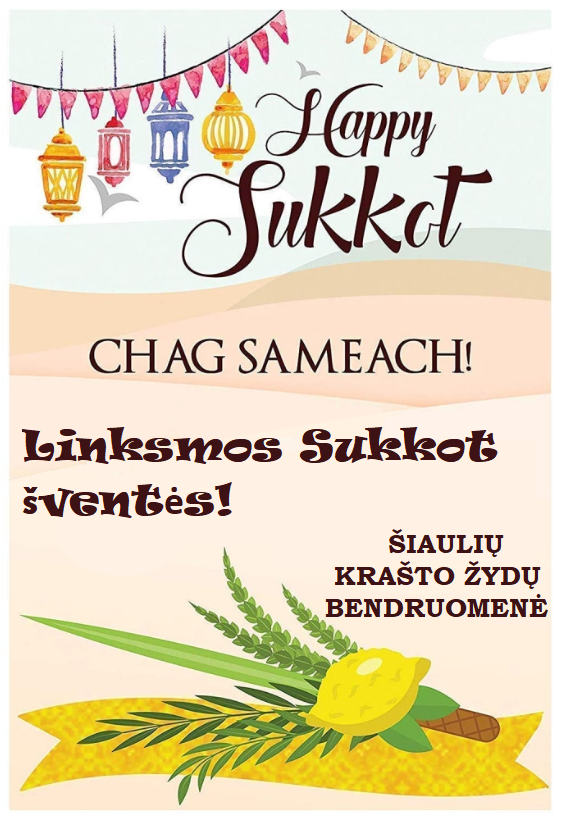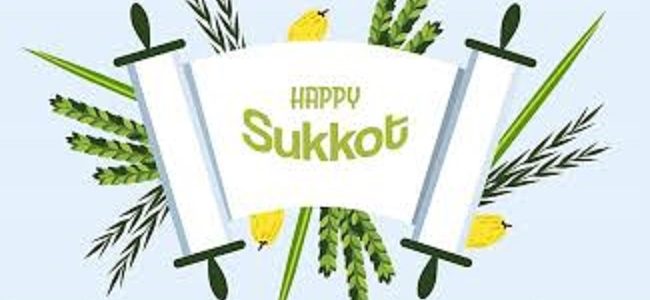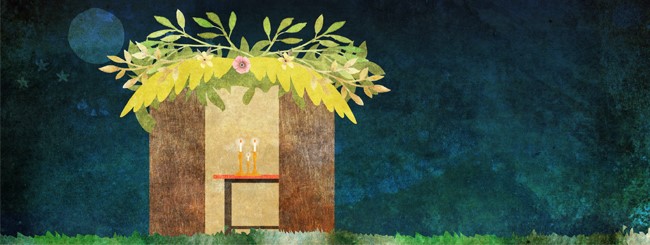The Lithuanian Jewish Community in partnership with the Lithuanian History Institute and others invites you to a series of virtual discussions called “Litvak History: Directions for Today” beginning December 9. This is the final event to mark Lithuania’s Year of the Vilna Gaon and Litvak History and is open to all who are interested in Jewish culture and history in Lithuania.
Litvak History: Directions for Today
A virtual academic discussion
Live streamcast with synchronous translation to English
The discussion begins at 9:45 A.M. and will run till 4:00 P.M., UTC+2, December 9, 2020. Participants will be able to pose their own questions live.
Event page: https://renginiai.puslapiai.lt/diskusiju-ciklas-lietuvos-zydu-istorija/
Facebook event link: https://www.facebook.com/events/704750490450977
Event program: https://bit.ly/3mGsr5g
For more information contact Marija Navickaitė Kajotienė, tel.: +370 628 71246, marija.navickaite12@gmail.com


